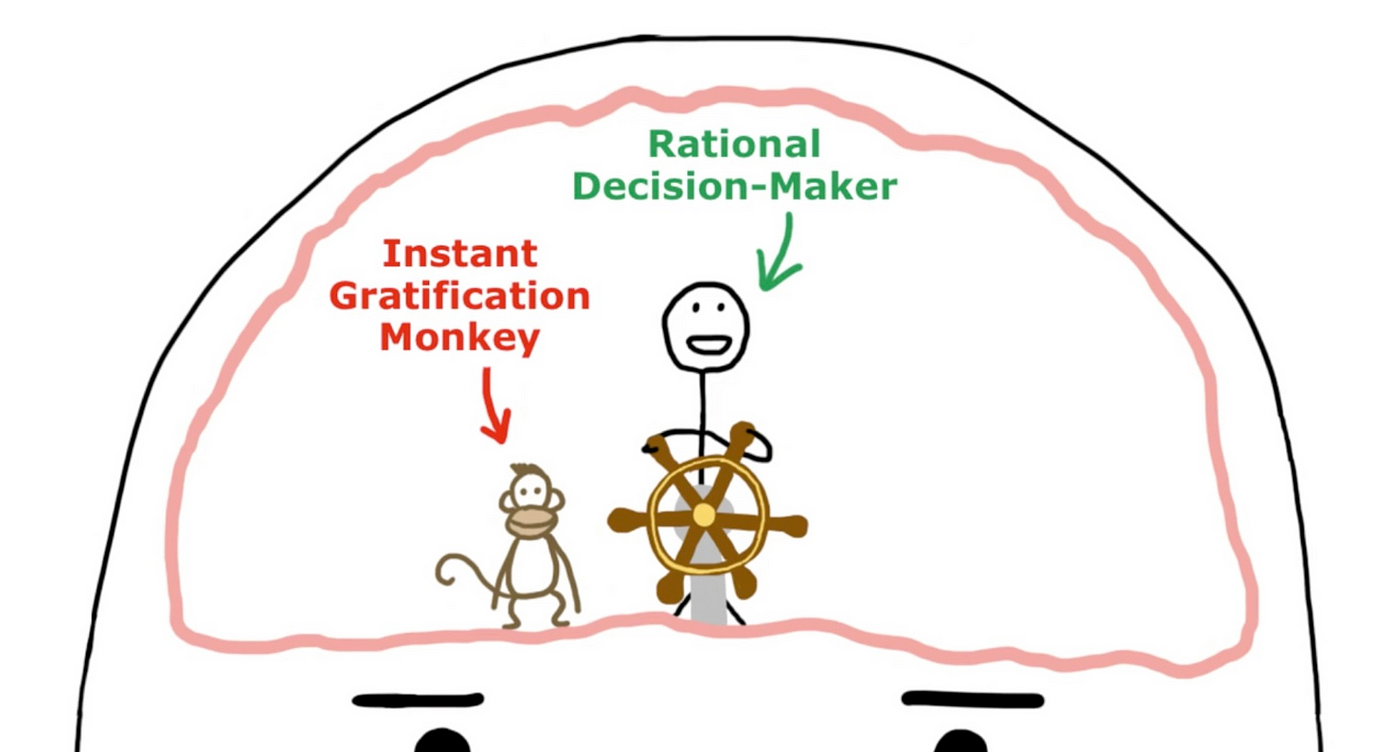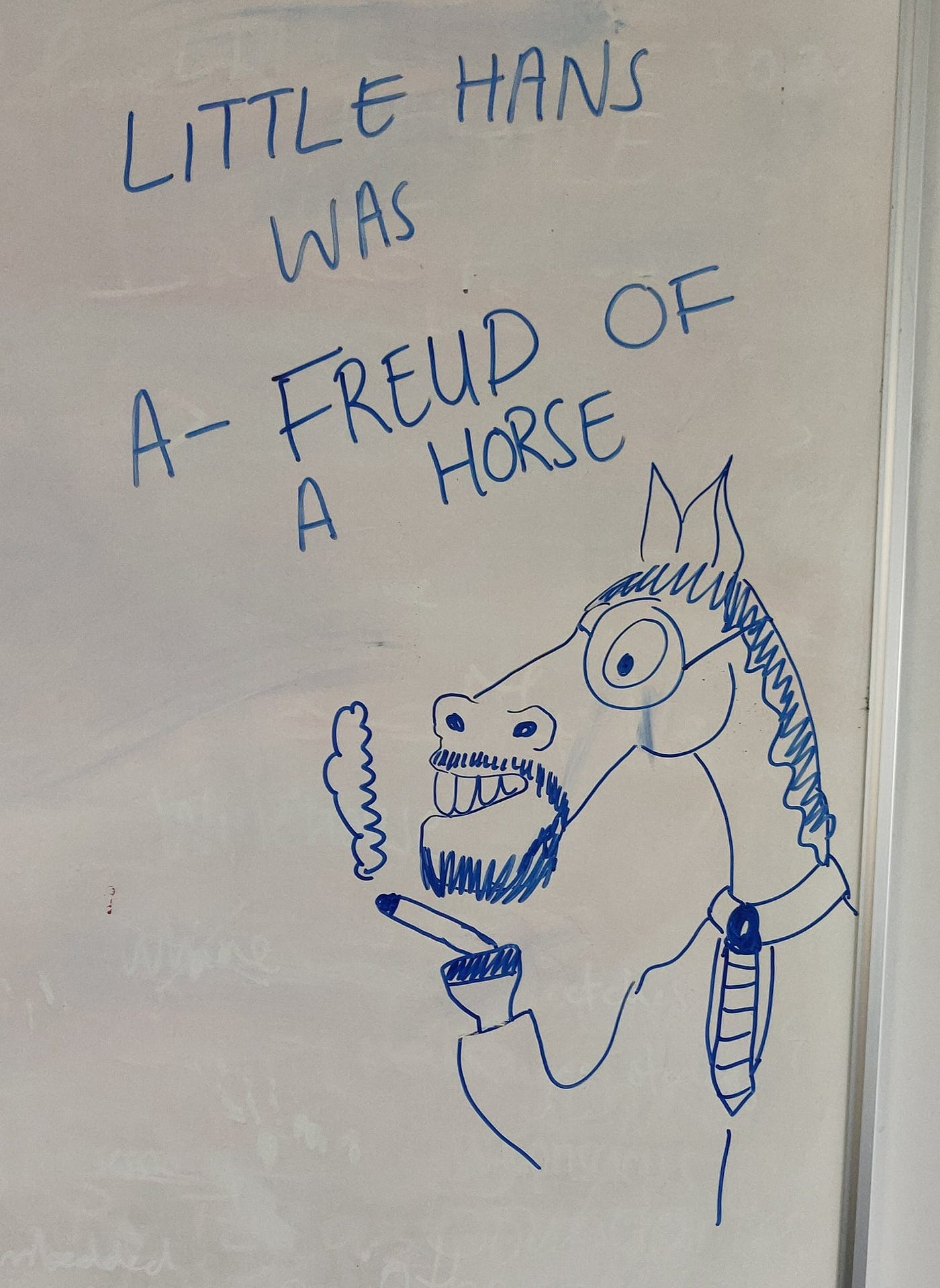Freud Notes
 Methods
Methods
Dream analysis, hypnosis, and free association (“clear your mind and say it all”)
Used interviews with his clients to delve into the unconscious and map out their mental processes
He called this method psychoanalysis
Consciousness
Three levels of consciousness:
Conscious
Preconscious
Unconscious
Used these to create a personality structure of Id, Ego, and Superego
Id— immediate gratification, aims to satisfy basic sexual aggressive drives
Superego— internalized ideals, standards of judgment, and morals (“angel on your shoulder”)
Ego— mediator between the two personalities, the “realistic one”
“There are two sides in you. One is baser, one better.”

Stages of Psychosexual Development
Freud believed that personality developed from unresolved problems in early childhood
Children pass through a series of psychosexual stages, over or underdevelopment in each stage can result in a fixation
Id focuses libido on a different erogenous zone (zone of pleasure) in each stage
Oral Stage
0-18 months
The pleasure center is on the mouth
Sucking
Biting
Chewing
Fixation can lead to smoking, chewing gum, biting nails, etc.
Anal Stage
18-36 months
Pleasure focuses on bladder and bowel control
Fixation can result in obsessive tidiness (too harsh) or untidiness (too lax)
Phallic Stage
3-6 years
The pleasure zone is in the genitals
Things get weird
The child develops Oedipus/Electra complex: Unconscious sexual desire for opposite-sex parent
They fear the same-sex parent or want them out of the way
Penis envy (girls) or fear of castration (boys)
Adopts characteristics of the same-sex parent
Failure to resolve the Oedipus/Electra complex → fixation
Fixation can result in homosexuality, self-obsession, or exhibitionism
Latency Stage
6-puberty
Dormant sexual feeling
“Cooties stage”— children tend to only spend time with same-sex children
Genital Stage
Puberty to death
The pleasure zone is in the genitals
Maturation of sexual interests
Criticisms of Freud
Only studied wealthy Austrian women
But then only applied his findings to males
His claims are difficult to test since these are unconscious stages
Sexist

Defense Mechanisms
The ego’s protective methods of reducing anxiety by distorting reality
Repression— Pushing thoughts into our unconscious
Your pet gets hit by a car but you don’t remember seeing it
Denial— Not accepting the ego-threatening truth
“I didn’t study but I’m sure I’ll do fine on the test”
Displacement— Redirecting feelings toward another, usually weaker, person/object
You do badly on the test so now you bully your younger siblings
Projection— Believing the feelings one holds for someone are actually the feelings that person holds for them
Liking someone and thinking they like you back
Reaction Formation— Expressing the opposite of how we feel
You hate someone but are extra nice to them to make up for it
Regression— Returning to an earlier, comforting form of behavior
Acting childish when you don’t get your way
Rationalization— Coming up with a good result of a bad outcome
You didn’t get into the college you wanted to so you say it was too far away or too big or something
Sublimation— Channeling frustrations toward a different goal
The only healthy one
Identification— Identifying with a group or set of values
Pride parade
Compensation— Making up for a lack of something in one area by making extra effort in another
You failed a math test so you work harder in English
Neo-Freudians
Alfred Adler
Childhood does determine personality, but the focus should be on social factors and not sexual ones
Our behavior is caused by trying to overcome inferiority
Erik Erikson
The different stages of major conflicts
Karen Horney
Our behavior is caused by trying to overcome helplessness
Penis envy is sexist
Carl Jung
We all have a collective unconscious
12 archetypes (universally understood symbols/personalities)
Created the Meyers-Briggs test